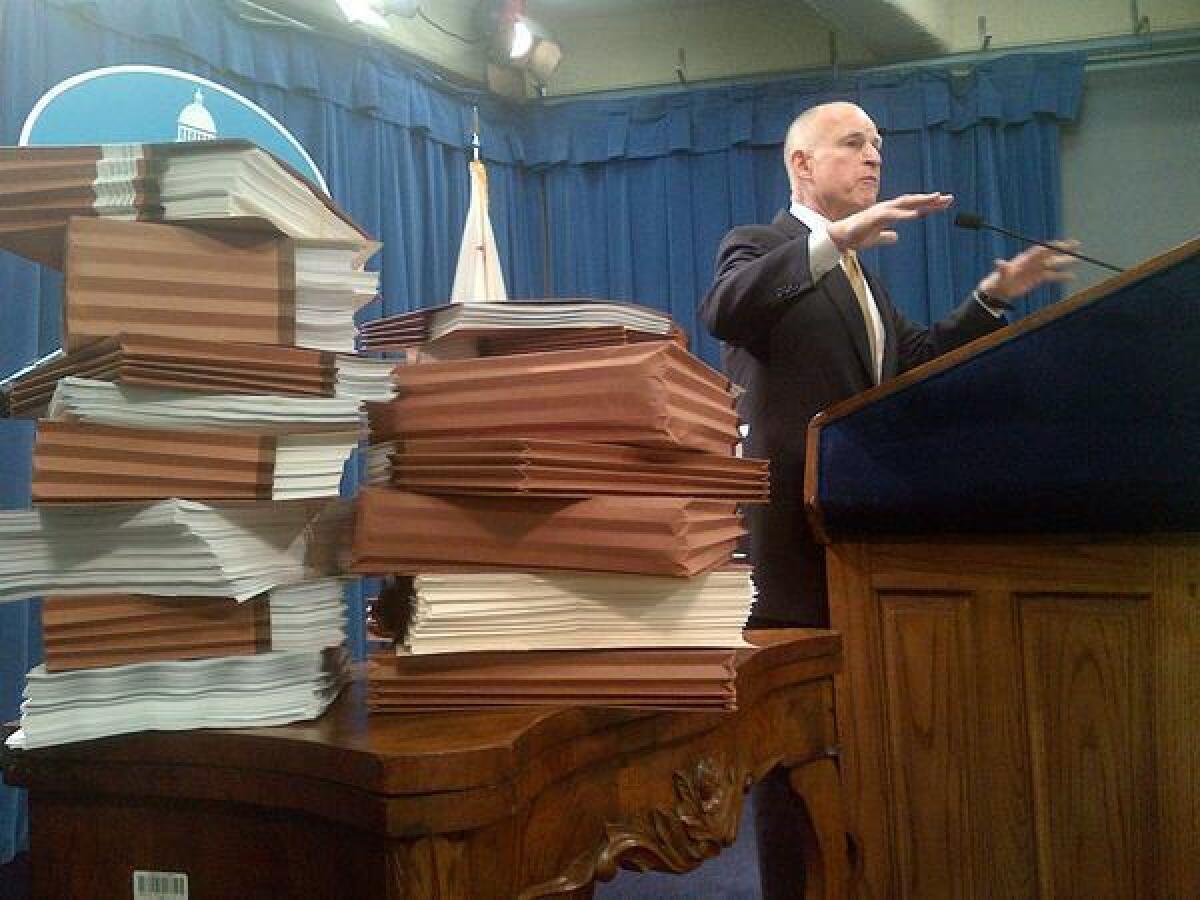Brown optimistic on talks to resolve prison impasse

SACRAMENTO — Gov. Jerry Brown expressed hope Tuesday that court-ordered negotiations can resolve the lingering impasse over how to relieve prison crowding in California.
As ordered by federal judges, the Brown administration has been in talks with attorneys for inmates whose lawsuits led the court to declare the prisons unconstitutionally crowded.
“I’m reasonably optimistic that we’re going to come to something that we can make work,” Brown said at a charity event in the capital.
The governor said the meetings, moderated by state appellate Judge Peter Siggins, have “been collaborative and informative.”
But he declined to provide details. The parties are under orders not to discuss specifics of the negotiations.
Lawyers for the prisoners declined to assess the progress of the talks.
“I really don’t think it’s appropriate for me to comment at this point,” said Don Specter, an attorney for the plaintiffs, “though I’m glad to see that the governor is optimistic about it.”
The optimism is a shift for Brown, who had previously dismissed any suggestion that the two sides could reach an accord. He declared in September that he would not let inmates rewrite prison policies.
“It would not be responsible to turn over California’s criminal justice policy to inmate lawyers who are not accountable to the people,” Brown said after state Senate leader Darrell Steinberg (D-Sacramento) proposed settlement talks similar to those underway now.
A panel of three federal judges ordered the state to remove about 9,600 inmates from state lockups by Feb. 24. In a September ruling, the judges blocked a plan to meet that deadline, passed by lawmakers and signed by Brown, to house most of those offenders at private prisons in other states.
On Tuesday, the governor called for more time to comply with the court. He cited the recent problems with the new federal healthcare rollout as a reason to proceed with caution.
“When government embarks on major programs, it should do so with humility and caution and a lot of planning,” he said. “So whenever people say ‘Hey, we need 10,000 fewer people in prison, do something,’ I want to do that something very carefully.”
The plan Brown signed recently also called for increased funding for drug, alcohol and mental health programs aimed at keeping offenders out of prison once they complete their sentences. He asked the court for three years to allow those programs to take hold in hopes that they would eventually bring the overall prison population down.
The judges rejected that timeline and ordered the state to seek solutions with lawyers representing California’s 134,000 prisoners.
Brown said he was talking to wardens at all state prisons to get a better grasp on conditions at their facilities. The wardens are meeting in Sacramento this week.
The governor made his remarks at a Sacramento elementary school, where he joined former Los Angeles Deputy Mayor Austin Beutner and former Commerce Secretary Mickey Kantor to promote Beutner’s program, Vision to Learn, that provides free eyeglasses to poor children.
More to Read
Sign up for Essential California
The most important California stories and recommendations in your inbox every morning.
You may occasionally receive promotional content from the Los Angeles Times.










